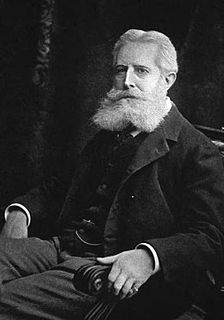A Quote by Philip Neri
In sickness we ought to ask God to give us patience, because it often happens, that when a man gets well, he not only does not do the good he proposed to do when he was sick, but he multiplies his sins and his ingratitude.
Related Quotes
Therefore the good man ought to be a lover of self, since he will then both benefit himself by acting nobly and aid his fellows; but the bad man ought not to be a lover of self, since he will follow his base passions, and so injure both himself and his neighbors. With the bad man therefore, what he does is not in accord with what he ought to do, but the good man does what he ought, since intelligence always chooses for itself that which is best, and the good man obeys his intelligence.
To judge sins is the business of one who is sinless, but who is sinless except God? Who ever thinks about the multitude of his own sins in his heart never wants to make the sins of others a topic of conversation. To judge a man who has gone astray is a sign of pride, and God resists the proud. On the other hand, one who every hour prepares himself to give answer for his own sins will not quickly lift up his head to examine the mistakes of others.
There is no such thing as a good influence. Because to influence a person is to give him one's own soul. He does not think his natural thoughts, or burn with his natural passions. His virtures are not real to him. His sins, if there are such thing as sins, are borrowed. He becomes an echo of someone else's music, an actor of a part that has not been written for him.
When God calls a man, He does not repent of it. God does not, as many friends do, love one day, and hate another; or as princes, who make their subjects favourites, and afterwards throw theminto prison. This is the blessedness of a saint; his condition admits of no alteration. God's call is founded upon His decree, and His decree is immutable. Acts of grace cannot be reversed.God blots out His people's sins, but not their names.
In a sermon entitled “God's Providence,” C. H. Spurgeon said, “Napoleon once heard it said, that man proposes and God disposes. 'Ah,' said Napoleon, 'but I propose and dispose too.' How do you think he proposed and disposed? He proposed to go and take Russia; he proposed to make all Europe his. He proposed to destroy that power, and how did he come back again? How had he disposed it? He came back solitary and alone, his mighty army perished and wasted, having well-nigh eaten and devoured one another through hunger. Man proposes and God disposes.
The average man votes below himself; he votes with half a mind or a hundredth part of one. A man ought to vote with the whole of himself, as he worships or gets married. A man ought to vote with his head and heart, his soul and stomach, his eye for faces and his ear for music; also (when sufficiently provoked) with his hands and feet. If he has ever seen a fine sunset, the crimson color of it should creep into his vote. The question is not so much whether only a minority of the electorate votes. The point is that only a minority of the voter votes.
No one can sense his own weakness is at least a small temptation is not allowed to afflict either his body or his soul. Then, comparing his weakness to the help of God, a man comes to know its magnitude. But whoever does not know that he needs God's help, let him make many prayers. Insofar as he multiplies them, in that measure will he be humbled.
A sick person is Allah's guest for as long as he is ill. Every day he is sick, God gives him countless rewards, as long as he says ' al hamdulillah', praise be
to God, and does not fight it and complain. When God returns to him his health, he expiates his sins and gives him the status of the newly-born
(completely pure and free of any sin). Illness is a mercy and a blessing.
Nothing can tend so much to humble us before the mercy and justice of God as the consideration of His benefits and our own sins. Let us, then, consider what He has done for us, and what we have done against Him; let us call to mind our sins in detail, and His gracious benefits in like manner, remembering that whatever there is of good in us is not ours, but His, and then we need not be afraid of vainglory or of taking complacency in ourselves.
By His gracious condescension God became man and is called man for the sake of man and by exchanging His condition for ours revealed the power that elevates man to God through his love for God and brings God down to man because of His love for man. By this blessed inversion, man is made God by divinization and God is made man by hominization. For the Word of God and God wills always and in all things to accomplish the mystery of His embodiment.
































